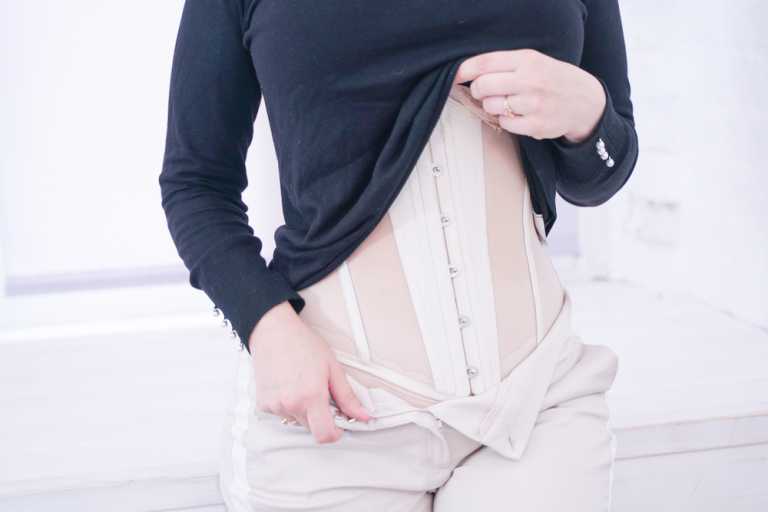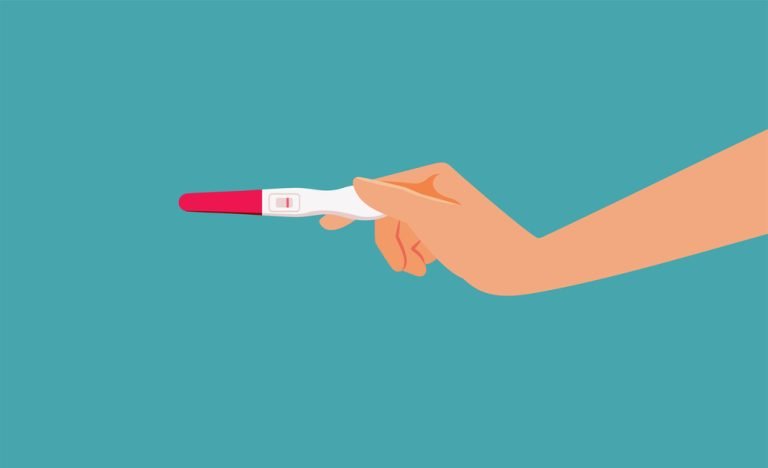In labor, the little windows of time where you’re not contracting should give you a chance to rest, recover, and maybe even grab a power nap. So, it’s not ideal if your baby is moving like crazy in between contractions.
You might also worry about whether it’s normal or if there’s something wrong.
The good news is that it is usually a great sign that your baby is awake and healthy. However, very rarely, it could be the first sign of a problem. The general rule is that your baby’s movements during labor shouldn’t be very different from their usual pattern.
Is It Normal for Your Baby to Move In Between Contractions?
It’s entirely normal for your baby to move in between contractions. Many moms report their baby went wild or had a little dance party throughout labor. Not surprising, really, given that they’re being pushed, squeezed, and rudely evicted.
Generally, kicks in between contractions are a good sign. They mean that your baby is awake, alert, and healthy. But, if the movements are rhythmic, excessive, or worrying in any way, tell your doctor. It could be a sign that something is wrong.
Why Is Your Baby Moving Between Contractions?
Throughout labor, your baby will go through their regular sleep and wake cycles. This means their movements should follow the pattern you’ve come to know. However, sometimes kicks and wiggles can increase slightly, and here’s why:
You’re More Tuned in to Normal Movements During Labor
Daily life is full of distractions that keep you from noticing every flutter and kick. During labor, the safe arrival of your baby will be at the forefront of your mind. This will give you time to notice all of your baby’s movements. Between contractions, of course!
Your Baby Is Getting Into a Good Position for Birth
You’ll be happy to know that your baby will be helping you out a little during labor. If they start in a posterior position (facing your front), they’ll typically spin into an anterior position (facing your back). This is fantastic, as it’ll make labor much quicker and easier.
They’ll also do a bit of wiggling to get their head in the best position to make it through the birth canal.
Your Baby Isn’t a Fan of Contractions
Your baby has just spent nine months floating in a warm pool. Now they’re being impolitely squashed. Plus, someone has pulled the plug. It’s no surprise they have a little stretch or deliver a cheeky kick after each contraction.
Being Born Is Pretty Exciting
During your pregnancy, you probably had a few tricks to produce a wiggle or kick from your baby. These might’ve included a sugary drink, music, or lying in a certain way. In labor, you could be bouncing on a ball, making weird noises, and getting into some pretty wild positions.
Each of these is exciting for your little one and can bring on a baby dance party.
Your Baby Is in Distress
A decrease in movements and a drop in heart rate are the most crucial warning signs that your baby is in distress. But, in rare cases, a sudden increase in movements could also indicate a problem. Particularly if you’d describe them as wild, frantic, or crazy.
If this sounds like your baby’s movements, tell a health professional immediately. It could be the first sign of an issue with the cord or that your baby isn’t coping with labor.
How Much Should Your Baby Move During Labor?
During labor, healthy babies will stick to their pre-labor routine. You should feel at least ten kicks per hour. There’s no upper limit.
Unlike you, they’ll also get to sleep through some of it, usually in 40-minute cycles. So, there’s no need to worry if you don’t feel any movements for an hour or so.
However, it’s vital to tell your doctor straight away if your baby’s movements slow down, stop, or change. It could indicate that they’re in distress.
What to Do if Your Baby Is Moving Too Much During Labor
The first thing to do if you think your baby is moving too much is to speak to your healthcare provider. It’s likely that there’s nothing wrong, and they’ll be able to put your mind at ease.
Unfortunately, this will do nothing to help you rest if your baby wants to spend labor tap dancing. But there are things you can do to calm your little one down:
- Avoid caffeine, as it can stimulate your little one.
- Don’t eat anything too sugary. Choose slow-release energy, like whole-grain carbs.
- Go for a walk. The movement might rock your baby to sleep.
- Use a birth pool. The water may help both you and your baby get comfortable.
What to Do if You’re Worried About Baby Movements During Labor
The most important thing you can do during labor is to stay calm and relaxed. If you start feeling stressed, your adrenaline and cortisol levels will rise. These are hormones that could slow or stall your labor.
If your baby’s movements are causing you anxiety, ask for continuous monitoring. This is a strap you can wear around your bump that will track your baby’s heartbeat.
It might make it a little trickier to get into some positions or to use a birthing pool, but it could ease your worries.
What to Do if Your Baby Is Not Moving Between Contractions
Around 66 % of babies move during contractions rather than between them. So, as long as you feel your baby move during labor, it doesn’t matter if they take a little rest in the gaps. They need the break just as much as you do.
FAQs
As far as scientists can tell, contractions shouldn’t hurt your baby. But they may find them uncomfortable.
They’ll feel the sensation of being squeezed. It’s probably quite weird for someone who’s been floating in an amniotic sac for nine months.
Some women report that their babies kicked more during labor. Others felt more movement in the run-up to it. But, in general, healthy babies stick to their regular patterns.
No, your baby’s movements should not slow or stop before or during labor. Seek medical help right away if you’ve noticed fewer kicks.




